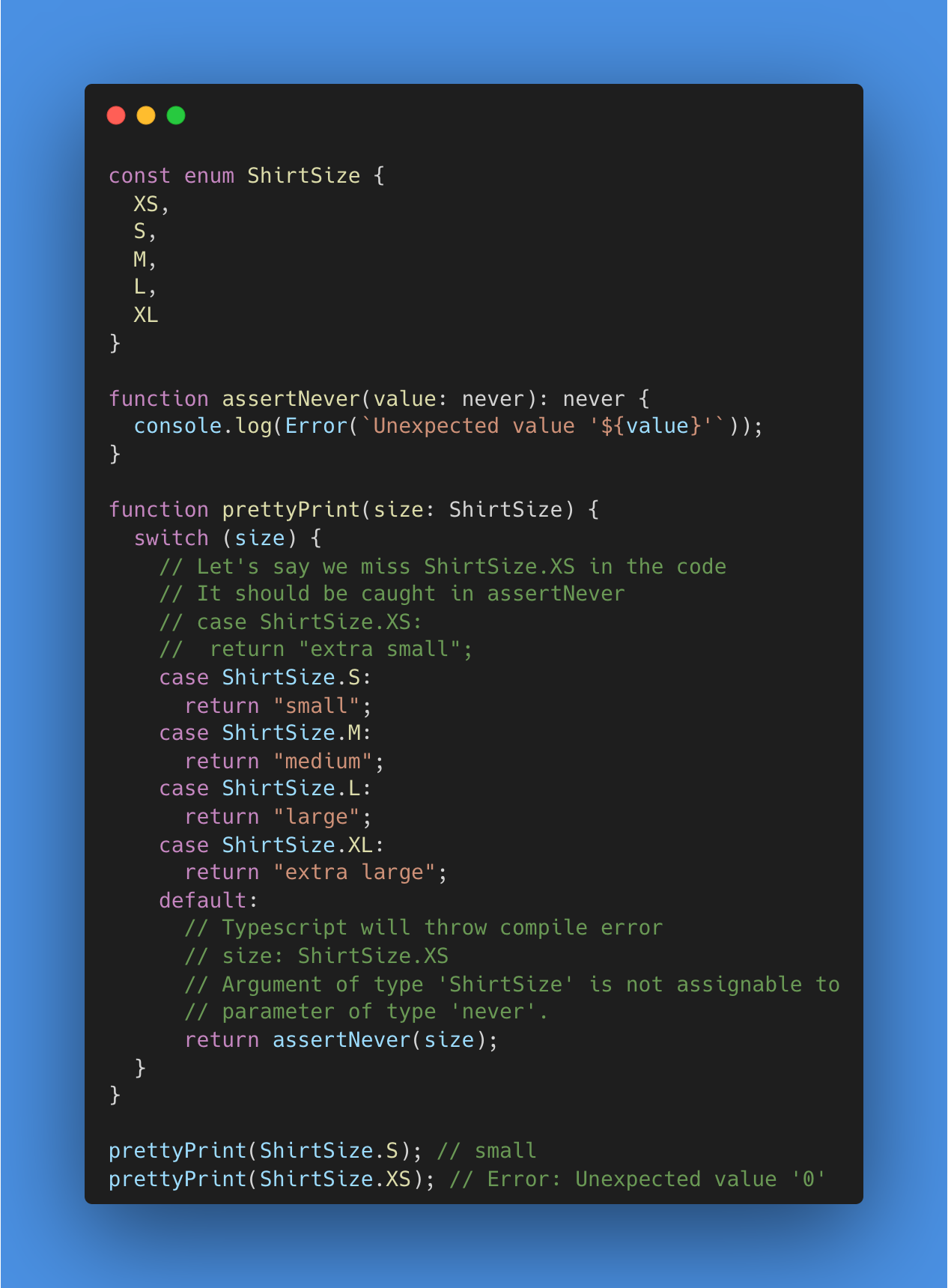[TypeScript] Use TypeScript’s never Type for Exhaustiveness Checking
TypeScript 2.0 introduced a new primitive type called never, the type of values that never occur. It helps model the completion behavior of functions more accurately and can also be used for exhaustiveness checking.
never type means that 'That part of code cannot be reached'.
In somecases, never type can be useful as well.
const enum ShirtSize { XS, S, M, L, XL } function assertNever(value: never): never { // throw Error(`Unexpected value '${value}'`) // Adjusted for plunker output console.log(Error(`Unexpected value '${value}'`)); } function prettyPrint(size: ShirtSize) { switch (size) { case ShirtSize.S: console.log("small"); case ShirtSize.M: return "medium"; case ShirtSize.L: return "large"; case ShirtSize.XL: return "extra large"; // [ts] Argument of type 'ShirtSize.XS' is // not assignable to parameter of type 'never'. default: return assertNever(size); } } prettyPrint(ShirtSize.S) prettyPrint(ShirtSize.XXL)
In the example, we want to make sure that every time in the enum ShirtSzie has been handled by the 'prettyPrint' function.
But sometime, we might miss one case. That's where 'assertNever' function can help to make sure, we have gone though all the cases.




 浙公网安备 33010602011771号
浙公网安备 33010602011771号